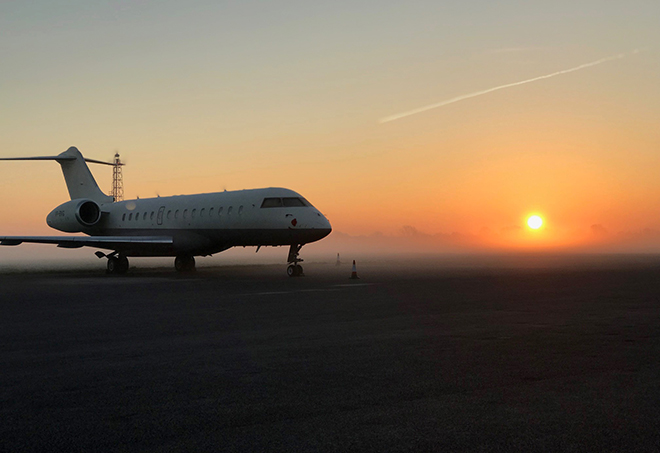INTERNATIONAL defence company Marshall of
Cambridge has identified Cranfield Airport as one of three potential locations
for its new headquarters.
The company has concluded that it must move in
order to realise its growth plans and is in early talks with Cranfield as well
as RAF Duxford and RAF Wyton in Cambridgeshire.
Marshall chief executive Alistair McPhee said: “It has become increasingly clear that a move to new,
purpose-built facilities will afford us a fantastic opportunity to fulfil our
true potential as a business.
“It is still very early days but we know that
finding the right airfield location that will give us the necessary space and
flexibility to support our planned growth, which is close enough to Cambridge
to enable us to retain and attract talent, will be a complex and time-consuming
task.”
Marshall will work with all three locations
over the coming months to assess their feasibility, he added. The company
expects to make an announcement some time next year and intends to move by
2030.
Cranfield
University, which operates the airport, has ambitious plans to develop the
airfield as a research centre. It was the first airport in the UK to install a
digital air traffic control centre and is developing the £67 million Digital
Aviation Research Technology Centre.
University vice-chancellor and chief executive
Professor Sir Peter Gregson said: “These are early-stage discussions but we are
excited about this potential development on the Cranfield Air Park and look
forward to having future productive discussions with Marshall.
“Cranfield
has ambitious plans for our global research airport. These discussions with
Marshalls are aligned with our approved Air Park and Masterplan planning
applications.”
To finance the move, the Marshall Group has
signalled its intent to the local authorities and other key stakeholders to put
the Cambridge Airport site forward for development as part of the next Local Plan
from 2030. However, it remains remain committed to investment plans for the
site that will see Marshall spend more than £30 million over the next five
years to upgrade existing infrastructure, said Mr McPhee.
“We
have won a number of very significant programmes over the past 18 months and
delivering those, along with continuing to support our long-term customers,
will be our key priority as we plan for the next exciting chapter of our
history.”

